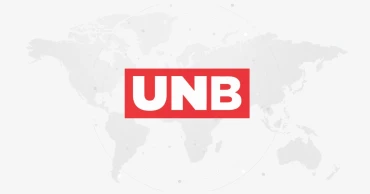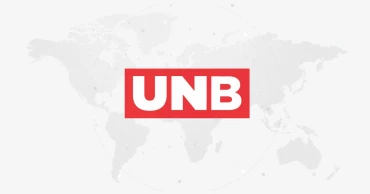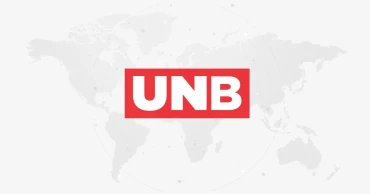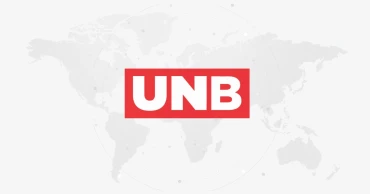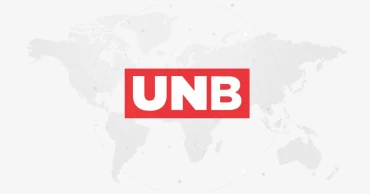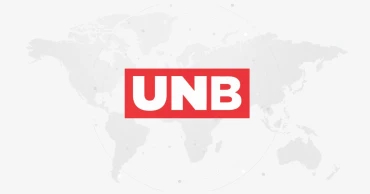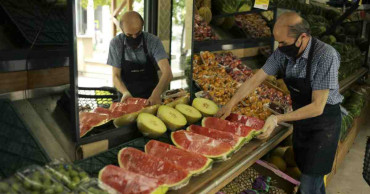global economy
Xi vows to defend free trade at APEC as Trump skips key summit
Chinese President Xi Jinping pledged to defend global free trade at the Asia-Pacific Economic Cooperation (APEC) summit on Friday, where he took center stage after U.S. President Donald Trump skipped the meeting.
The annual regional forum, held this year in the South Korean city of Gyeongju, opened a day after Trump departed the country. His earlier meeting with Xi had produced agreements aimed at easing the trade tensions that have rattled the global economy.
Although the two leaders’ talks dominated attention, Trump’s absence from APEC underscored his continued rejection of large multilateral gatherings. Critics warn that this could further damage America’s reputation in a forum representing almost 40% of the global population and more than half of world trade.
Xi Calls for Unity and Open Trade
Addressing APEC’s opening session, Xi urged member nations to strengthen cooperation amid global uncertainty.
“The more turbulent the times, the more we must work together,” he said, noting that the world faces “rapid changes and increasing volatility.”
He emphasized the importance of stable supply chains, countering U.S. efforts to separate from China economically. Xi also called for deeper collaboration in green industries and clean energy.
Read more: Xi, Carney meet in South Korea to rebuild strained China-Canada ties
In a written message to the APEC CEO summit, Xi reaffirmed that China remains open to investment and committed to the multilateral trading system.
“Those who establish a presence in the Chinese market will seize key opportunities in global competition,” he wrote. “Investing in China means investing in the future.”
Representing Trump, U.S. Treasury Secretary Scott Bessent said Washington’s efforts to rebalance trade were aimed at ensuring “fair and reciprocal” terms, and at creating more resilient production networks that reduce dependence on vulnerable sectors.
Xi’s Diplomatic Meetings
The summit marked Xi’s first visit to South Korea in 11 years. On the sidelines, he met with Japanese Prime Minister Sanae Takaichi, Canadian Prime Minister Mark Carney, and Thai Prime Minister Anutin Charnvirakul.
During talks with Takaichi, Xi called for a “constructive and stable relationship for a new era,” while Takaichi expressed hopes of addressing bilateral issues and building a stronger personal rapport with Xi.
Xi is also expected to meet South Korean President Lee Jae Myung on Saturday, with discussions likely to include North Korea’s nuclear program.
APEC’s Growing Challenges
Founded in 1989 to promote free and open trade across the Asia-Pacific, APEC now faces mounting challenges, including U.S.-China rivalry, supply chain disruptions, aging populations, and the impact of artificial intelligence on employment.
Under Trump, Washington has shifted from cooperation to competition with Beijing, with tariff hikes and an “America First” agenda unsettling global markets and challenging decades of globalization.
Read more: WHO: Militia Assault on Darfur hospital came in multiple waves
Opening the summit, host President Lee urged members to focus on solidarity and shared prosperity.
“We may not always stand on the same side, but we can unite around our common goal of mutual growth,” he said.
Canada’s Carney echoed that sentiment, announcing plans to double his country’s non-U.S. exports within a decade, citing “one of the most profound global shifts since the fall of the Berlin Wall.”
Despite the positive tone after Trump and Xi’s meeting, experts warn that tensions could flare again as both nations vie for dominance in manufacturing and emerging technologies like AI.
“Bringing the two largest economies together to ease tariff and export disputes helped avert the worst outcomes for global trade,” said Leif-Eric Easley, professor at Ewha Womans University. “But APEC should be more than a platform for trade truces — it must advance cooperation on sustainable and digital trade.”
South Korea Seeks Consensus
As host, South Korea is pushing for all 21 member economies to adopt a joint statement — a goal that eluded APEC in 2018 due to U.S.-China friction.
Foreign Minister Cho Hyun recently said that while a strong pro–free trade statement may be difficult, Seoul hopes for a broader declaration highlighting regional peace and prosperity.
This year’s agenda also prioritizes collaboration on artificial intelligence and demographic challenges.
Read more: Have deep relations with US, extensive economic ties with China: Touhid Hossain
4 months ago
War in Ukraine at 1 year: Pain, resilience in global economy
An Egyptian widow is struggling to afford meat and eggs for her five children. An exasperated German laundry owner watches as his energy bill jumps fivefold. Nigerian bakeries have shut their doors, unable to afford the exorbitant price of flour.
One year after Russia invaded Ukraine on Feb. 24, 2022, and caused widespread suffering, the global economy is still enduring the consequences — crunched supplies of grain, fertilizer and energy along with more inflation and economic uncertainty in a world that was already contending with too much of both.
As dismal as the war's impact has been, there’s one consolation: It could have been worse. Companies and countries in the developed world have proved surprisingly resilient, so far avoiding the worst-case scenario of painful recession.
But in emerging economies, the pain has been more intense.
In Egypt, where nearly a third of the population lives in poverty, Halima Rabie has struggled for years to feed her five school-age children. Now, the 47-year-old widow has cut back on even the most basic groceries as prices keep rising.
“It’s become unbearable,” Rabie said, heading to her job as a cleaner at a state-run hospital in Cairo’s twin city of Giza. “Meat and eggs have become a luxury.”
Also read: Putin in Belarus, eyeing next steps in Ukraine war
In the United States and other wealthy countries, a painful surge in consumer prices, fueled in part by the war’s effect on oil prices, has steadily eased. It's buoyed hopes that U.S. Federal Reserve inflation fighters will relent on interest rate increases that have threatened to tip the world’s biggest economy into recession and sent other currencies tumbling against the dollar.
China also dropped draconian zero-COVID lockdowns late last year that hobbled growth in the second-largest economy.
Some good fortune has helped, too: A warmer-than-usual winter has helped lower natural gas prices and limit the damage from an energy crisis after Russia largely cut off gas to Europe. Still, oil and gas prices were high enough to cushion the impact on the energy-exporting Russian economy from the international sanctions imposed after President Vladimir Putin’s invasion.
The war “is a human catastrophe,’’ said Adam Posen, president of the Peterson Institute for International Economics. “But its impact on the world economy is a passing shock.’’
Still, in ways big and small, the war is causing pain. In Europe, for example, natural gas prices are still three times what they were before Russia started massing troops on Ukraine's border.
Sven Paar, who runs a commercial laundry in Walduern, southwest Germany, is facing a gas bill this year of about 165,000 euros ($176,000) — up from 30,000 euros ($32,000) last year — to run 12 heavy-duty machines that can wash 8 tons of laundry a day.
“We have passed the prices on, one to one, to our customers,” Paar said.
So far, he has been able to keep his customers after showing them the energy bills that accompany the price increases.
“Fingers crossed, it’s working so far," he said. “At the same time, the customers groan, and they have to pass the costs on to their own customers.”
While he's kept his steady customers, they're offering less business. Restaurants with fewer customers need fewer tablecloths washed. Several hotels closed in February rather than pay heating costs during their slow season, meaning fewer hotel sheets to clean.
Punishingly high food prices are inflicting particular hardship on the poor. The war has disrupted wheat, barley and cooking oil from Ukraine and Russia, major global suppliers for Africa, the Middle East and parts of Asia where many struggle with food insecurity. Russia also was the top supplier of fertilizer.
While a U.N.-brokered deal has allowed some food shipments from the Black Sea region, it's up for renewal next month.
In Egypt, the world’s No. 1 wheat importer, Rabie took a second job at a private clinic in July but still struggles to keep up with rising prices. She earns less than $170 a month.
Rabie said she cooks meat once a month and has resorted to cheaper byproducts to ensure her children get protein. But even those are becoming harder to find.
The government urged Egyptians to try chicken feet and wings as an alternative source of protein — a suggestion met with scorn on social media but that also led to a spike in demand.
“Even the feet have become expensive,” Rabie said.
In Nigeria, a top importer of Russian wheat, average food prices skyrocketed 37% last year. Bread prices have doubled in some places amid wheat shortages.
“People have huge decisions to make,” said Alexander Verhes, who runs Life Flour Mill Limited in the southern Delta state. "What food do they buy? Do they spend it on food? Schooling? Medication?”
At least 40% of bakeries in the Nigerian capital of Abuja shut down after the price of flour jumped about 200%.
“The ones still in the business are doing so at breaking point with no profits,” said Mansur Umar, chairman of the bakers’ association. “A lot of people have stopped eating bread. They have gone for alternatives because of the cost.’’
In Spain, the government is spending 300 million euros ($320 million) to help farmers acquire fertilizer, the price of which has doubled since the war in Ukraine.
“Fertilizer is vital because the land needs food,’’ said Jose Sanchez, a farmer in the village of Anchuelo, east of Madrid. “If the land does not have food, then the crops do not grow up."
It all means a slowing global economy. The International Monetary Fund dropped growth expectations this year and in 2022 that equates to about $1 trillion in lost production. Europe's economy, for example, “is still experiencing significant headwinds" despite a drop in energy prices and is at risk of falling into recessio n, said Nathan Sheets, global chief economist at banking giant Citi.
The IMF says consumer prices jumped 7.3% in the wealthiest countries last year — above its January 2022 forecast of 3.9% — and 9.9% in poorer ones, up from 5.9% expected pre-invasion.
In the U.S., such inflation has forced businesses to be nimble.
Stacy Elmore, co-founder of The Luxury Pergola in Noblesville, Indiana, said the cost of providing health insurance for eight workers has spiked 39% over the past year — to $10,000 a month. Amid a labor shortage, she also had to raise hourly wages for her top installer from $24 to $30 an hour.
Inflation-whipped consumers began to balk at paying $22,500 for a 10-by-16-foot louvered pergola — kind of a gazebo without walls — that was sold through dealers. Sales sank last year. So Elmore pivoted to do-it-yourself models, selling directly to shoppers at a sharply reduced price of $12,580.
“With inflation so high, we’ve worked to broaden the appeal of our products and make them easier for the average person to acquire,” Elmore said.
In the Indonesian capital, Jakarta, many street vendors know they can’t pass along surging food prices to their already struggling customers. So some are skimping on portions instead, a practice known as “shrinkflation.’’
“One kilogram of rice was for eight portions ... but now we made it 10 portions," said Mukroni, 52, who runs a food stall and like many Indonesians goes by only one name. Customers, he said, “will not come to the shop" if prices are too high.
“We hope for peace," he said, “because, after all, no one will win or lose, because everyone will be a victim.’’
___
Wiseman reported from Washington and McHugh from Frankfurt, Germany. AP journalists Samy Magdy in Cairo; Chinedu Asadu in Abuja, Nigeria; Anne D’Innocenzio in New York; Iain Sullivan in Anchuelo, Spain; and Edna Tarigan in Jakarta, Indonesia, contributed.
3 years ago
"Bangladesh advances its strategic trajectory towards becoming a major global economy"
The US Chamber of Commerce’s US-Bangladesh Business Council (USBBC) has announced the appointment of Steven Kobos, President, and Chief Executive Officer of Excelerate Energy, as Chairman of USBBC’s Board of Directors.
Kobos assumes the larger role of Board Chair as "Bangladesh advances its strategic trajectory towards becoming a major global economy," and as the USBBC recognizes 50 years of US-Bangladesh diplomatic relations, said the US Chamber of Commerce on Wednesday.
Nisha Biswal, USBBC President and Senior Vice President for South Asia, International Strategy and Global Initiatives at the US Chamber of Commerce said, “We are delighted that Steven will serve as the new Chairman of the U.S.-Bangladesh Business Council Board of Directors."
Steven’s leadership and commitment to strengthening US-Bangladesh economic ties and his belief in the promise and potential of Bangladesh as global economic power make him the ideal leader for the Council, she said.
"As President and CEO of Excelerate Energy, Steven brings unparalleled expertise in energy cooperation, resiliency, infrastructure, and security across the global energy ecosystem. I am confident that under his stewardship the US-Bangladesh Business Council will grow to new heights and continue to advance the US-Bangladesh economic corridor," said Biswal.
“Chairing the US-Bangladesh Business Council Board of Directors is a privilege and responsibility that I am honored to accept,” said Steven Kobos.
“Excelerate Energy is proud to join USBBC member companies that serve as bridges for prosperity and collaboration between the United States and Bangladesh. I look forward to leading the Council’s role in furthering bilateral commercial cooperation, inclusive economic growth, and global security. I wish to thank Nisha Biswal, Ambassador Atul Keshap, and Sid Mehra for their leadership and for this unique opportunity to partner with government and business leaders in both countries," said Kobos.
Steven Kobos currently serves as the President and Chief Executive Officer for Excelerate Energy.
He was appointed to this role in 2018 after serving in an integral capacity within the company as a board member and counsel for the previous 11 years.
Kobos is proud to call Excelerate Energy his home and to lead a team that embodies the company’s core values of stewardship, accountability, improvement, and leadership.
Read more: Collaboration with Bangladeshi startups can be 'powerful tool' to grow economic ties: US Chamber
Under his leadership, Excelerate Energy successfully listed on the New York Stock Exchange in April 2022.
Kobos has served on the Board of the U.S.-Bangladesh Business Council since its launch and co-chaired the U.S.-Bangladesh Energy Task Force.
Excelerate developed Bangladesh’s first LNG import terminal, Moheshkhali Floating LNG Terminal (MLNG) in 2018.
The company’s two floating storage and regasification units (FSRUs) in the Bay of Bengal provide approximately 20 percent of Bangladesh’s daily natural gas supply.
In July 2021, Excelerate collaborated with USBBC Board companies Chevron, HSBC, and MetLife and U.S.-based NGO Project C.U.R.E. to airlift critical medical equipment and supplies to aid Bangladesh’s medical colleges in their response to the COVID-19 pandemic.
The US Chamber of Commerce's US-Bangladesh Business Council is a business advocacy platform to advance policy priorities of the U.S. business community in the bilateral trade relationship with Bangladesh.
Read more: US-Bangladesh Business Council to be launched April 6
3 years ago
IMF now expects world economy to grow 2.9% in 2023
The outlook for the global economy is growing slightly brighter as China eases its zero-COVID policies and the world shows surprising resilience in the face of high inflation, elevated interest rates and Russia's ongoing war against Ukraine.
That's the view of the International Monetary Fund, which now expects the world economy to grow 2.9% this year. That forecast is better than the 2.7% expansion for 2023 that the IMF predicted in October, though down from the estimated 3.4% growth in 2022.
The IMF, a 190-country lending organization, foresees inflation easing this year, a result of aggressive interest rate hikes by the Federal Reserve and other major central banks. Those rate hikes are expected to slow the consumer demand that has driven prices higher. Globally, the IMF expects consumer inflation to decelerate from 8.8% last year to 6.6% in 2023 and 4.3% in 2024.
A big factor in the upgrade to global growth was China’s decision late last year to lift anti-virus controls that had kept millions of people at home. The IMF said China’s “recent reopening has paved the way for a faster-than-expected recovery.’’
Read more: UN forecasts fall in global economic growth to 1.9% in 2023
The IMF now expects China's economy — the world’s second-biggest, after the United States — to grow 5.2% this year, up from its October forecast of 4.4%. Beijing's economy eked out growth of just 3% in 2022 — the first year in more than 40, the IMF noted, that China has expanded more slowly than the world as a whole. But the end of virus restrictions is expected to revive economic activity in 2023.
The IMF's 2023 growth outlook improved for the United States (forecast to grow 1.4%) as well as for the 19 countries that share the euro currency (0.7%). Europe, though suffering from energy shortages and higher prices resulting from Russia's invasion of Ukraine, proved “more resilient than expected,’’ the IMF said. The European economy benefited from a warmer-than-expected winter, which held down demand for natural gas,
Russia's economy, hit by sanctions after its invasion of Ukraine, has proved sturdier than expected, too: The IMF's forecast foresees Russia registering 0.3% growth this year. That would mark an improvement from a contraction of 2.2% in 2022. And it's well above the 2.3% contraction for 2023 that the IMF had forecast for Russia in October.
The United Kingdom is a striking exception to the IMF's brighter outlook for 2023. It has forecast that the British economy will shrink 0.6% in 2023; in October, the IMF had expected growth of 0.3%. Higher interest rates and tighter government budgets are squeezing the British economy.
Read More: Global economic growth will slow down in 2023, but will pick up in 2024: IMF chief
“These figures confirm we are not immune to the pressures hitting nearly all advanced economies,’’ Chancellor of the Exchequer Jeremy Hunt said in response to the IMF forecast. “Short-term challenges should not obscure our long-term prospects — the U.K. outperformed many forecasts last year, and if we stick to our plan to halve inflation, the U.K. is still predicted to grow faster than Germany and Japan over the coming years.”
The IMF noted that the world economy still faces serous risks. They include the possibility that Russia's war against Ukraine war will escalate, that China will suffer a sharp increase in COVID cases and that high interest rates will cause a financial crisis in debt-laden countries.
The global outlook has been shrouded in uncertainty since the coronavirus pandemic struck in early 2020. Forecasters have been repeatedly confounded by events: A severe if brief recession in early 2020; an expectedly strong recovery triggered by vast government stimulus aid; then a surge in inflation, worsened when Russia's invasion of Ukraine nearly a year ago disrupted world trade in energy and food.
Three weeks ago, the IMF’s sister agency, the World Bank, issued a more downbeat outlook for the global economy. The World Bank slashed its forecast for international growth this year by nearly half — to 1.7% — and warned that the global economy would come “perilously close’’ to recession.
Read More: IMF expected to approve Bangladesh’s $4.5 billion loan package on Monday
3 years ago
Global economic growth will slow down in 2023, but will pick up in 2024: IMF chief
The days of the International Monetary Fund (IMF) regularly downgrading global economic growth are almost over, according to Kristalina Georgieva, the organization’s managing director.
At the World Economic Forum in Davos, Switzerland, the IMF chief told CNBC on Tuesday (January 17, 2023), “I don’t see a downgrade now, but growth in 2023 will slow down.”
“The good news though is that we expect growth to bottom out this year and 2024 to be a year in which we finally see the world economy on an upside,” she said.
Read: Economic woes, war, climate change on tap for Davos meeting
Since October 2021, the IMF has revised its growth projection three times.
Georgieva told CNBC that although inflation is dropping, it is “still quite high,” and that we are “not quite there yet” in terms of central banks possibly lowering interest rates.
She added that central banks must be careful “not to remove their foot off the brake too early”. The US inflation rate plummeted last week to its lowest level since October 2021, while inflation in the euro zone fell in December for a second consecutive month.
Read: Europe’s inflation slows again but cost of living still high
Georgieva also spoke on China, reiterating IMF predictions that the country’s GDP will expand but that it won’t contribute as much to global growth as in the past.
China will achieve the IMF’s projected growth of 4.4 percent by the end of the year if it continues with its present Covid-19 reform plan, she said.
3 years ago
World Bank: Recession a looming threat for global economy
The global economy will come “perilously close” to a recession this year, led by weaker growth in all the world’s top economies — the United States, Europe and China — the World Bank warned on Tuesday.
In an annual report, the World Bank, which lends money to poorer countries for development projects, said it had slashed its forecast for global growth this year by nearly half, to just 1.7%, from its previous projection of 3%. If that forecast proves accurate, it would be the third-weakest annual expansion in three decades, behind only the deep recessions that resulted from the 2008 global financial crisis and the coronavirus pandemic in 2020.
Though the United States might avoid a recession this year — the World Bank predicts the U.S. economy will eke out growth of 0.5% — global weakness will likely pose another headwind for America’s businesses and consumers, on top of high prices and more expensive borrowing rates. The United States also remains vulnerable to further supply chain disruptions if COVID-19 keeps surging or Russia’s war in Ukraine worsens.
And Europe, long a major exporter to China, will likely suffer from a weaker Chinese economy.
The World Bank report also noted that rising interest rates in developed economies like the United States and Europe will attract investment capital from poorer countries, thereby depriving them of crucial domestic investment. At the same time, the report said, those high interest rates will slow growth in developed countries at a time when Russia’s invasion of Ukraine has kept world food prices high.
“Russia’s invasion of Ukraine has added major new costs,” World Bank President David Malpass said on a call with reporters. “The outlook is particularly devastating for many of the poorest economies where poverty reduction is already ground to a halt and access to electricity, fertilizer, food and capital is likely to remain limited for a prolonged period.”
The impact of a global downturn would fall particularly hard on poorer countries in such areas as Saharan Africa, which is home to 60% of the world’s poor. The World Bank predicts per capita income will grow just 1.2% in 2023 and 2024, which is such a tepid pace that poverty rates could rise.
Read more: Emerging, developing economies less prepared for downturn than 10 years ago: World Bank
“Weakness in growth and business investment will compound the already devastating reversals in education, health, poverty and infrastructure and the increasing demands from climate change,” Malpass said. “Addressing the scale of these challenges will require significantly more resources for development and global public goods.”
Along with seeking new financing so it can lend more to poorer countries, Malpass said, the World Bank is, among other things, seeking to improve its lending terms that would increase debt transparency, “especially for the rising share of poor countries that are at high risk of debt distress.”
The report follows a similarly gloomy forecast a week earlier from Kristina Georgieva, the head of the International Monetary Fund, the global lending agency. Georgieva estimated on CBS’ “Face the Nation” that one-third of the world will fall into recession this year.
“For most of the world economy, this is going to be a tough year, tougher than the year we leave behind,” Georgieva said. “Why? Because the three big economies — U.S., EU, China — are all slowing down simultaneously.”
The World Bank projects that the European Union’s economy won’t grow at all next year after having expanded 3.3% in 2022. It foresees China growing 4.3%, nearly a percentage point lower than it had previously forecast and about half the pace that Beijing posted in 2021.
The bank expects developing countries to fare better, growing 3.4% this year, the same as in 2022, though still only about half the pace of 2021. It forecasts Brazil’s growth slowing to 0.8% in 2023, down from 3% last year. In Pakistan, it expects the economy to expand just 2% this year, one-third of last year’s pace.
Other economists have also issued bleak outlooks, though most of them not quite as dire. Economists at JPMorgan are predicting slow growth this year for advanced economies and the world as a whole, but they don’t expect a global recession. Last month, the bank predicted that slowing inflation will bolster consumers’ ability to spend and power growth in the United States and elsewhere.
Read more: World Bank dims outlook for global economy amid Russia war
“The global expansion will turn into 2023 bent but not broken,” the JPMorgan report said.
3 years ago
Can’t control global economy, but want to boost exports: BGMEA president
Despite serious challenges Bangladesh wants to keep its market share in the global apparels market unhurt and give it a further boost by showcasing its innovations and strengths through "Made in Bangladesh Week 2022" that begins in Dhaka on Sunday.
“We all know the situation of the global economy, but we have to do our work. We can’t control the global economy. We even want to increase our market share keeping the current export unhurt,” said Faruque Hassan, president of the Bangladesh Garment Manufacturers and Exporters Association (BGMEA).
Responding to questions at a “meet the press” event held in a city hotel on Saturday afternoon, he said their intention is to work together with all stakeholders including buyers and brands and hoped that they grow by overcoming those challenges – domestic and global.
Prime Minister Sheikh Hasina will inaugurate the "Made in Bangladesh Week 2022” on Sunday (November 12, 2022) morning.
The week-long event will be inaugurated at the Hall of Fame of Bangabandhu International Conference Center (BICC).
Read: Bangladesh’s apparel export to cross $100 bn by 2030: experts
With the theme “Care for Fashion”, the week-long event "Made in Bangladesh Week 2022” will continue till 18th November 2022.
“We want to brand Bangladesh. We want to showcase our capabilities and new innovations that we have developed in our factories. We want to showcase what we are doing and what we have done in the past several years,” he said.
The BGMEA chief said they are expecting quite a big number of their partners – brands, suppliers, development partners and others to see for themselves what Bangladesh is doing.
After the grand opening, a display zone at the Carnival Hall, titled “Experience the Transformation of RMG towards Sustainability & Innovation”, will remain open till 6 pm, said the BGMEA chief.
The Prime Minister will also launch two coffee table books, on which BGMEA has been working since the beginning of this year.
3 years ago
Russia's war at 6 months: A global economy in growing danger
Martin Kopf needs natural gas to run his family's company, Zinkpower GmbH, which rustproofs steel components in western Germany.
Zinkpower's facility outside Bonn uses gas to keep 600 tons of zinc worth 2.5 million euros ($2.5 million) in a molten state every day. The metal will harden otherwise, wrecking the tank where steel parts are dipped before they end up in car suspensions, buildings, solar panels and wind turbines.
Six months after Russia invaded Ukraine, the consequences are posing a devastating threat to the global economy, including companies like Zinkpower, which employs 2,800 people. Gas is not only much more costly, it might not be available at all if Russia completely cuts off supplies to Europe to avenge Western sanctions, or if utilities can't store enough for winter.
Germany may have to impose gas rationing that could cripple industries from steelmaking to pharmaceuticals to commercial laundries. "If they say, we're cutting you off, all my equipment will be destroyed," said Kopf, who' also chairs Germany’s association of zinc galvanizing firms.
Governments, businesses and families worldwide are feeling the war's economic effects just two years after the coronavirus pandemic ravaged global trade. Inflation is soaring, and rocketing energy costs have raised the prospect of a cold, dark winter. Europe stands at the brink of recession.
Also read: Bangladesh may prefer to import Russian oil via third country
High food prices and shortages, worsened by the cutoff of fertilizer and grain shipments from Ukraine and Russia that are slowly resuming, could produce widespread hunger and unrest in the developing world.
Outside Uganda's capital of Kampala, Rachel Gamisha said Russia's war in faraway Ukraine has hurt her grocery business. She has felt it in surging prices for necessities like gasoline, selling for $6.90 a gallon. Something that's 2,000 shillings (about $16.70) this week may cost 3,000 shillings ($25) next week.
“You have to limit yourself,’’ she said. “You have to buy a few things that move fast.’’
Gamisha has noticed something else, too — a phenomenon called “shrinkflation": A price may not change, but a doughnut that used to weigh 45 grams may now be only 35 grams. Bread that weighed 1 kilogram is now 850 grams.
Russia's war led the International Monetary Fund last month to downgrade its outlook for the global economy for the fourth time in under a year. The lending agency expects 3.2% growth this year, down from the 4.9% it forecast in July 2021 and well below a vigorous 6.1% last year.
“The world may soon be teetering on the edge of a global recession, only two years after the last one," Pierre-Olivier Gourinchas, the IMF's chief economist, said.
Also read: Russians down Ukrainian drones in Crimea as war broadens
The U.N. Development Program said rising food and energy prices threw 71 million people worldwide into poverty in the first three months of the war. Countries in the Balkans and sub-Saharan Africa were hit hardest. Up to 181 million people in 41 countries could suffer a hunger crisis this year, the U.N. Food and Agriculture Organization has projected.
In Bangkok, rising costs for pork, vegetables and oil have forced Warunee Deejai, a street-food vendor, to raise prices, cut staff and work longer hours.
“I don’t know how long I can keep my lunch price affordable,’’ she said. “Coming out from COVID lockdowns and having to face this is tough. Worse is, I don’t see the end of it.’’
Even before Russian President Vladimir Putin ordered the invasion of Ukraine, the global economy was under pressure. Inflation had skyrocketed as a stronger-than-expected recovery from the pandemic recession overwhelmed factories, ports and freight yards, causing delays, shortages and higher prices. In response, central banks began raising interest rates to try to cool economic growth and tame spiking prices.
“We’ve all got all these different things going on,’’ said Robin Brooks, chief economist at the International Institute of Finance. “The volatility of inflation went up. The volatility of growth went up. And therefore, it’s become infinitely harder for central banks to steer the ship.’’
China, pursuing a zero-COVID policy, imposed lockdowns that have severely weakened the world’s second-biggest economy. At the time, many developing countries still grappled with the pandemic and the heavy debts they had taken on to protect their populations from economic disaster.
All those challenges might have been manageable. But when Russia invaded Ukraine on Feb. 24, the West responded with heavy sanctions. Both actions disrupted trade in food and energy. Russia is the world’s third-biggest petroleum producer and a leading exporter of natural gas, fertilizer and wheat. Farms in Ukraine feed millions globally.
The resulting inflation has rippled out to the world.
Near Johannesburg, South Africa, Stephanie Muller has been comparing prices online and checking different grocery stores to find the best deals.
“I have three children who are all in school, so I have been feeling the difference,’’ she said.
Shopping at a market in Vietnam's capital of Hanoi, Bui Thu Huong said she's been limiting her spending and cutting back on weekend dinners out. At least there’s one advantage to cooking at home with her children: “We can bond with them more in the kitchen, while saving money at the same time.’’
Syahrul Yasin Limpo, Indonesia's agriculture minister, warned this month that the price of instant noodles, a staple in the Southeast Asian nation, might triple because of inflated wheat prices. In neighboring Malaysia, vegetable farmer Jimmy Tan laments that fertilizer prices are up 50%. He’s also paying more for supplies like plastic sheets, bags and hoses.
In Karachi, Pakistan, far from the battlefields of Ukraine, Kamran Arif has taken a second, part-time job to supplement his wages.
“Because we have no control on prices, we can only try to increase our income,’’ he said.
A vast majority of people live in poverty in Pakistan, whose currency has lost up to 30% of its value against the dollar and the government has increased electricity prices 50%.
Muhammad Shakil, an importer and exporter, says he can no longer get wheat, white chickpeas and yellow peas from Ukraine.
“Now that we have to import from other countries, we have to buy at higher prices" — sometimes 10%-15% more, Shakil said.
As the war fuels inflation, central banks are raising interest rates to try to slow price increases without derailing economic growth.
The resulting increase in loan rates is punishing FlooringStores, a New York company that helps customers find flooring material and contractors. Sales are down because fewer homeowners are borrowing to pay for home improvements.
“A huge percentage of our customers finance their projects with home-equity loans and similar products, meaning that the hike in interest rates really killed our business,’’ CEO Todd Saunders said. “Inflation wasn’t helping, but the interest rates had a bigger effect.’’
Europe, which for years depended on Russian oil and natural gas for its industrial economy, has absorbed a gut punch. It faces the growing threat of recession as the Kremlin throttles back flows of natural gas used to heat homes, generate electricity and fire up factories. Prices are 15 times what they were before Russia massed troops on the Ukrainian border in March 2021.
“There’s a lot more recessionary risk and pressure in Europe than in the rest of the high-income economies," said Adam Posen, president of the Peterson Institute for International Economics and a former Bank of England policymaker.
The damage has hardly spared Russia, whose economy the IMF expects to contract 6% this year. Sergey Aleksashenko, a Russian economist now living in the United States, noted that the country's retail sales tumbled 10% in the second quarter compared with a year earlier as consumers cut back.
“They have no money to spend,” he said.
3 years ago
World Bank dims outlook for global economy amid Russia war
The World Bank has sharply downgraded its outlook for the global economy, pointing to Russia’s war against Ukraine, the prospect of widespread food shortages and concerns about the potential return of “stagflation” — a toxic mix of high inflation and sluggish growth unseen for more than four decades.
The 189-country anti-poverty agency predicted Tuesday that the world economy will expand 2.9% this year. That would be down from 5.7% global growth in 2021 and from the 4.1% it had forecast for 2022 back in January.
“For many countries, recession will be hard to avoid,” said David Malpass, the World Bank’s president.
The agency doesn’t foresee a much brighter picture in 2023 and 2024: It predicts just 3% global growth for both years.
Read: Overseas aid cuts imperil SDGs: UN chief
For the United States alone, the World Bank has slashed its growth forecast to 2.5% this year from 5.7% in 2021 and from the 3.7% it had forecast in January. For the 19 European countries that share the euro currency, it downgraded the growth outlook to 2.5% this year from 5.4% last year and from the 4.2% it had expected in January.
In China, the world’s second-biggest economy after the United States, the World Bank expects growth to slow to 4.3% from 8.1% last year. China’s zero-COVID policies, involving draconian lockdowns in Shanghai and other cities, brought economic life to a standstill. The Chinese government is providing aid to ease the economic pain.
Emerging market and developing economies are collectively forecast to grow 3.4% this year, decelerating from a 6.6% pace in 2021.
Russia’s invasion of Ukraine has severely disrupted global trade in energy and wheat, battering a global economy that had been recovering robustly from the coronavirus pandemic. Already-high commodity prices have gone even higher as a result, threatening the availability of affordable food in poor countries.
Read: High prices, Asian markets could blunt EU ban on Russian oil
“There’s a severe risk of malnutrition and of deepening hunger and even of famine,” Malpass warned.
The World Bank expects oil prices to surge 42% this year and for non-energy commodity prices to climb nearly 18%. But it foresees oil and other commodity prices both dropping 8% in 2023. It likened the current spike in energy and food prices to the oil shocks of the 1970s.
“Additional adverse shocks,” the agency warned in its new Global Economic Prospects report, “will increase the possibility that the global economy will experience a period of stagflation reminiscent of the 1970s.’’
The prospect of stagflation poses a dilemma for the Federal Reserve and other central banks: If they continue to raise interest rates to combat inflation, they risk causing a recession. But if they try to stimulate their economies, they risk driving prices higher and making inflation an even more intractable problem.
The World Bank noted that the previous period of stagflation required rate increases so steep that they tipped the world into recession and led to a series of financial crises in the poor countries of the developing world.
3 years ago
IMF chief: Ukraine war and inflation threaten global economy
The head of the International Monetary Fund warned Thursday that Russia's war against Ukraine was weakening the economic prospects for most of the world’s countries and called high inflation “a clear and present danger’’ to the global economy.
IMF Managing Director Kristalina Georgieva said the consequences of Russia's invasion were contributing to economic downgrades for 143 countries, although most of them should continue to grow. The war has disrupted global trade in energy and grain and is threatening to cause food shortages in Africa and Middle East.
Georgieva made her comments in a speech on the eve of next week’s spring meetings of the IMF and the World Bank in Washington.
An unexpectedly strong recovery from 2020’s pandemic recession has caught businesses by surprise, leaving factories, ports and freight yards unable to keep up with robust customer demand and forcing prices higher.
Also read: Sri Lanka halts debt repayment pending IMF bailout plan
Chronically high inflation, which is forcing the world’s central banks to raise interest rates and likely slow economic growth in the process, amounts to “a massive setback for the global recovery,’’ Georgieva said.
Georgieva also warned of “the fragmentation of the world economy into geopolitical blocs," with the West imposing far-reaching sanctions on Russia and China expressing support for the autocratic Russian regime of President Vladimir Putin.
“In a world where war in Europe creates hunger in Africa; where a pandemic can circle the globe in days and reverberate for years; where emissions anywhere mean rising sea levels almost everywhere — the threat to our collective prosperity from a breakdown in global cooperation cannot be overstated,” Georgieva said.
Before the war, Russia and Ukraine had supplied 28% of global wheat exports. And Russia and Belarus accounted for 40% of exports of the fertilizer potash.
“Now,’’ Georgieva said, “grain and corn prices are soaring, and leaders across Africa and the Middle East are telling me that supplies are running low. Food insecurity is a grave concern.
Also read: Bangladesh economy to grow 6.6 per cent FY22, as Covid-19 transmission decreases: IMF
“We must act now with a multilateral initiative to bolster food security. The alternative is dire: More hunger, more poverty and more social unrest — especially for countries that have struggled to escape fragility and conflict for many years.’’
Georgieva called on the world to support the Ukrainians and noted that the IMF had delivered $1.4 billion in emergency financing to help Ukraine meet its immediate spending needs. The IMF is also offering assistance to Ukraine’s neighbors, including Moldova, which has accepted more than 400,000 war refugees.
3 years ago

